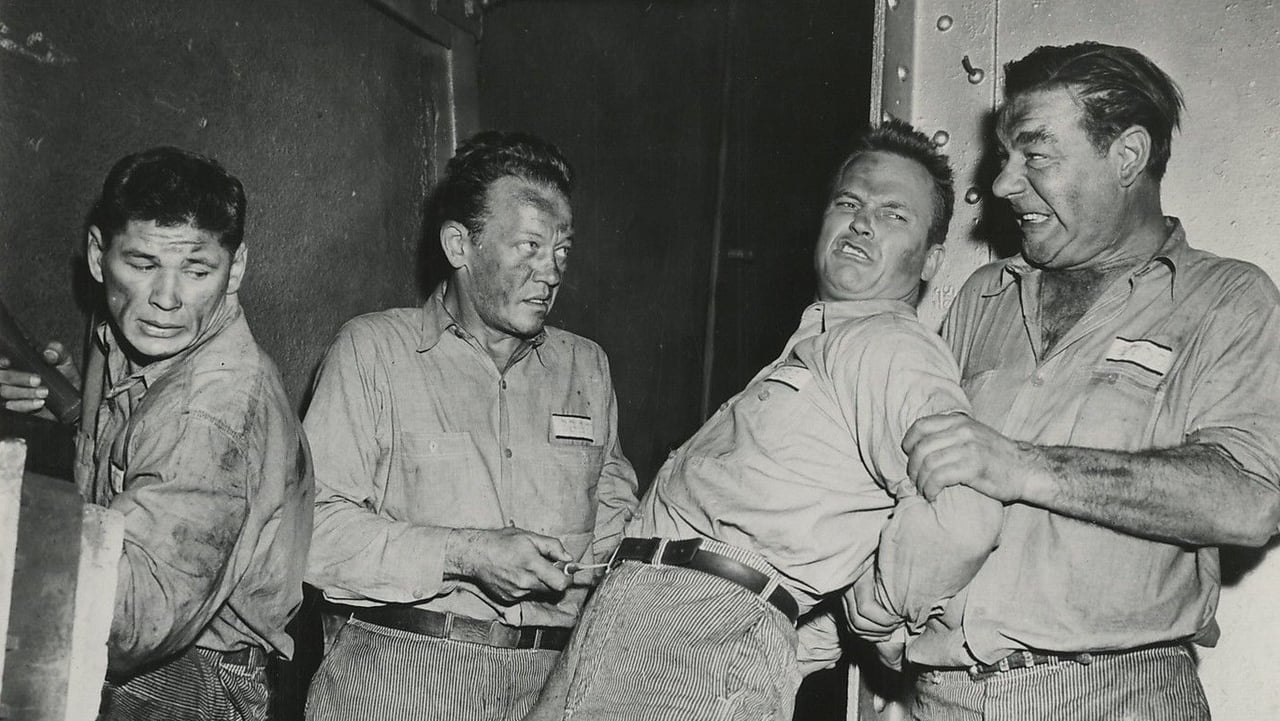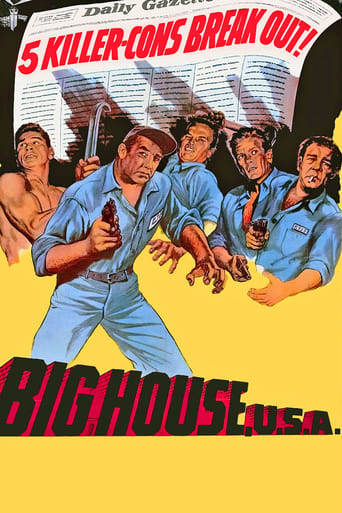Jeanskynebu
the audience applauded
Actuakers
One of my all time favorites.
Livestonth
I am only giving this movie a 1 for the great cast, though I can't imagine what any of them were thinking. This movie was horrible
Aubrey Hackett
While it is a pity that the story wasn't told with more visual finesse, this is trivial compared to our real-world problems. It takes a good movie to put that into perspective.
Rainey Dawn
One of the dirtiest, grittiest crime noirs to come out of the 1950s. It's about a man, Jerry Barker, that kidnaps a sick child, holds him hostage and asks the father for ransom money for the safe return of the child. Barker gets his money but the boy ends up dead and Barker in prison. He became known as The Ice Man in the news papers and well hated in prison for killing a child. Barker's troubles become worse inside the penitentiary.Great casting, superb acting, cinematography is beautiful and a story that can leave you on the edge of your seat. A worthwhile crime-prison film to watch. It is really rough at times but a darn good film. Great to see this one again! 9/10
bkoganbing
Big House USA sounds like a prison picture, but only in part of the film is the setting a maximum security prison. There is the part how Ralph Meeker got there and the last part about his escape with several other solid citizens, residents of Big House USA.A young boy with one rich father is kidnapped by Meeker and dies while in his custody. Not that he killed him, but kidnapping alone as per the Lindbergh law gets him the gas chamber. Father Willis Bouchey pays the ransom, but gets no child back.Meeker is arrested, but all he's charged with is extortion, without a body dead or alive, the authorities can do no more. But with the reputation as a child killer, Meeker's not going to be a popular guy even in the maximum security federal penitentiary he's sent.But cell-mate Broderick Crawford has other ideas about the ransom money never recovered and buried in a national park. He and confederates Lon Chaney, Jr., William Talman, and Charles Bronson escape with Meeker. They had an escape plan in the works already, a quite ingenious one which costs another prisoner his life during a dry run.A chance to see all these guys in a film is never to be passed up. Crawford we're told is a smart guy. Personally if he were that smart he'd have realized that the authorities would know full well he was heading for the park and go anywhere else. But greed overtakes intelligence.There's also a nice role here for Felicia Farr as Meeker's accomplice. FBI man Reed Hadley and chief forest ranger Roy Roberts represent the law. Big House USA spends more time in the wide open spaces than in a maximum security prison. Still it's a tight little noir film with a fine cast of players.
MartinHafer
The film begins with a little boy getting lost while at summer camp. Ralph Meeker finds the boy and pretends to be helping him, but actually is intent on kidnapping him and holding him for a huge ransom. Unfortunately, the kid dies while in his care but Meeker is an animal and STILL proceeds to get the money and then tries to skip town. However, the cold and calculating killer is caught and sent to prison--but unfortunately, all they can prove is that he extorted the money--not that he had anything to do with the boy's disappearance.This is sort of like a prison movie merged with a Film Noir flick. That's because much of the beginning and ending of the film is set outside prison and its style throughout was rather Noir inspired--with a format much like an episode of DRAGNET (the bloodier 1950s version, not the late 60s incarnation). However, it did lack some of the great Noir camera-work and lighting as well as the cool Noir lingo--but it still succeeded in telling a great story. What was definitely Noir was the unrelentingly awful and brutal nature of the film--a plus for Noir fans. Now I hate violent and bloody films, but this one was a bit more restrained but still very shocking for a 1950s audience--featuring some of the most brutal plot elements of the decade (tossing a child's body off a cliff, burning a corpse with a blowtorch to confuse in the identification of another corpse and the scene with the escaped prisoner who is scalded to death). Because of all this, the film was above all else, realistic and shocking--much of it due to the excellent script, straight-forward acting and a few excellent and unexpected plot twists.By the way, this is one of the earliest films in which Charles Bronson appears with this name (previously, he'd been billed as "Charlie Buchinsky"). When he takes his shirt off in the film, take a look at how muscle-bound he was--I sure would have hated to have tangled with him!! In his prime, he might have been the most buff actor in Hollywood history who DIDN'T suck down steroids (and, consequently, had minuscule testicles from this drug).
wes-connors
It's "The F.B.I." starring Reed Hadley, with an all-star guest cast! The film begins with an accidental (convenient?) kidnapping, which leads to one thing, and another - which doesn't really indicate the main story, which is a "Big House, U.S.A." prison break story. The story is very improbable, to say the least. It's like a TV show, only more "violent" (for the times).BUT - the cast is a trip! Picture this: Ralph Meeker is sent to prison; his cell-mates are the following criminals: Broderick Crawford, Lon Chaney Jr., Charles Bronson (reading a "Muscle" magazine!), and William Talman (reading a "Detective" magazine!). Honest! You should know that, an early scene reveals what happens to the "missing" boy, answering the ending "voiceover." If you don't want to have that hanging, don't miss the opening scenes between the "Iceman" and the boy (Peter Votrian doing well as a runaway asthmatic). *** Big House, U.S.A. (1955) Howard W. Koch ~ Broderick Crawford, Ralph Meeker, Reed Hadley

